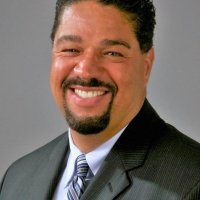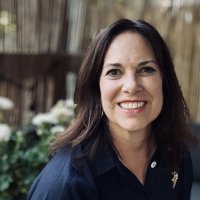Climate Change Adaptation and Population Dynamics in Latin America and the Caribbean: Key Issues for Policy Makers
Photo Credit: Neil Palmer (CIAT), Cañete basin, Peru. Contact n.palmer@cgiar.org
Global climate change trends indicate that even with mitigation efforts, our planet will continue warming into the next century, leading to more extreme climate conditions and weather events. The Latin America and Caribbean region is particularly vulnerable to some of the most challenging aspects of climate change—sea-level rise affecting coastal cities, changes in precipitation impacting agriculture, glacial melting threatening water reserves. Population trends—like migration and urbanization—can exacerbate these challenges or, in some cases, serve as methods of adaptation. Building resilience to climate change through adaptation efforts and women's empowerment are key strategies for enabling continued development across the region in climate-uncertain times.
The Wilson Center has worked closely with USAID Missions in Latin America and the Caribbean over the past two years to convene key stakeholders in the region and to explore promising tools in climate change adaptation through a series of seminars. On July 28, we bring to Washington top experts and policymakers from those seminars in Colombia, Barbados, Dominican Republic, El Salvador, and Peru, to further broaden the dialogue about climate adaptation and population dynamics in Latin America and the Caribbean; and to encourage the development of new policy and programmatic tools that help countries of the region meet the financial, organizational, and political challenges that climate change presents.
Panel 1: 9:00 - 9:30am
Water Management and Engaging Stakeholders
Ronald Ruiz
Regional Manager of Natural Resources and Environment Management, Government of Piura, Peru
Daritza Nicodemo
General Coordinator, Centro de Estudios Urbanos y Regionales, Pontificia Universidad Católica Madre y Maestra
Victor Guevara
Director General for Policies and Regulations, Ministerio de Construcción y Saneamiento, Vivienda
Roger-Mark DeSouza
Director, Population, Environmental Security, and Resilience, Wilson Center
Moderator: Carmen Lacambra, Consultant, Wilson Center
Panel 2: 11:15am - 12:45pm
Adaptation, Health, Agriculture, and Food Security
Sally Edwards
Advisor, Sustainable Development and Environmental Health, PAHO/WHO Office for Barbados and the Eastern Caribbean Countries
Jose Luis Arellano
Project Chief, Operations and Conservation, Comision Nacional del Agua (CONAGUA), Mexico
Lisa Palmer (remarks presented by Sandeep Bathala, Wilson Center)
Fellow, National Socio-Environmental Synthesis Center (SESYNC)
Moderator: Steven R. Wilson, Inter-American Development Bank
Lunch Keynote: 12:45 - 2:00pm
John Furlow
U.S. Department of State
Panel 3: 2:00 - 4:00pm
Climate Change Adaptation Planning and Mainstreaming
Patricia Ramirez (via Skype)
Executive Secretary, Comité Regional de Recursos Hidráulicos del Istmo Centroamericano (CRRH-SICA)
Jessica Jacob
Climate Finance Expert
Paula Sierra
Research Program Coordinator, Instituto de Investigaciones Marinas y Costeras – INVEMAR-Colombia
Miguel Saravia
Executive Director, CONDESAN, Peru
Miguel Villazon
Senior Advisor, Mayor’s Office of Valledupar, Colombia
Moderator: Cynthia J. Arnson, Director, Latin American Program, Wilson Center
Speakers

Vice President, Sustainable Markets, Pact

Journalist and Research Professor, George Washington University; Author of Hot, Hungry Planet

Hosted By

Latin America Program
The Wilson Center’s prestigious Latin America Program provides non-partisan expertise to a broad community of decision makers in the United States and Latin America on critical policy issues facing the Hemisphere. The Program provides insightful and actionable research for policymakers, private sector leaders, journalists, and public intellectuals in the United States and Latin America. To bridge the gap between scholarship and policy action, it fosters new inquiry, sponsors high-level public and private meetings among multiple stakeholders, and explores policy options to improve outcomes for citizens throughout the Americas. Drawing on the Wilson Center’s strength as the nation’s key non-partisan policy forum, the Program serves as a trusted source of analysis and a vital point of contact between the worlds of scholarship and action. Read more


Environmental Change and Security Program
The Environmental Change and Security Program (ECSP) explores the connections between environmental change, health, and population dynamics and their links to conflict, human insecurity, and foreign policy. Read more


Brazil Institute
The Brazil Institute—the only country-specific policy institution focused on Brazil in Washington—aims to deepen understanding of Brazil’s complex landscape and strengthen relations between Brazilian and US institutions across all sectors. Read more
